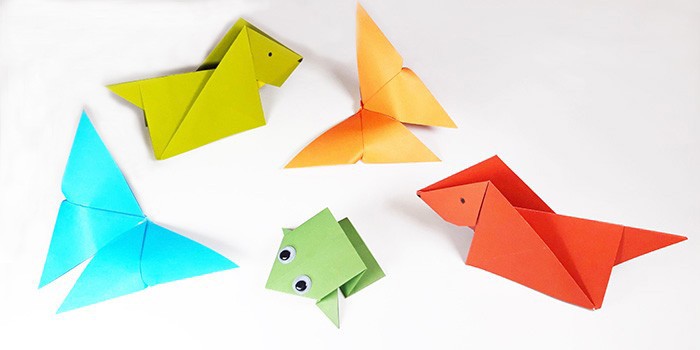
Welcome to our article on the 8 essential components of a successful after school club origami workshop.
In this informative piece, we will explore the key elements that contribute to a well-organized and engaging workshop experience.
From workshop structure and material management to student participation and advanced techniques, we will provide valuable insights to help educators and program coordinators create an enriching origami workshop that fosters creativity, skill development, and collaboration among students.
Join us as we delve into the world of origami and unlock the secrets to a thriving after school club workshop.
Workshop Structure
One key aspect of a successful after school club origami workshop is implementing a structured agenda that outlines the activities and timeline for the session. Having a clear plan in place ensures that the workshop runs smoothly and efficiently, maximizing the time available for learning and creating.
When designing the workshop activities, it is important to consider the skill level and interests of the participants. Incorporating a variety of teaching techniques, such as demonstrations, hands-on practice, and group projects, can help engage students and cater to different learning styles.
Additionally, it is essential to allocate sufficient time for each activity, allowing for adequate practice and mastery of the folding techniques.

Material Management
To ensure the smooth running of an after-school club origami workshop, efficient supply organization is crucial.
This involves carefully managing and categorizing the necessary materials, such as origami paper, scissors, and folding guides.
Additionally, implementing resource allocation strategies, such as creating stations with different materials and assigning specific roles to participants, can help maximize productivity and minimize material waste.
Efficient Supply Organization
Effective supply organization is essential for the smooth management of materials in an after school club origami workshop. Inventory tracking is a crucial aspect of supply organization, ensuring that all necessary materials are readily available and easily accessible.
By implementing a system for tracking inventory, such as using spreadsheets or inventory management software, club organizers can keep a record of the materials they have on hand, making it easier to restock when needed.
Additionally, having efficient storage solutions is vital to maintain a clutter-free workspace. Utilizing bins, shelves, or other storage containers can help keep materials organized and easily accessible.
Resource Allocation Strategies
Proper resource allocation and effective material management are crucial for the success of an after school club origami workshop. Budget planning and time management play integral roles in ensuring that the necessary resources are available when needed.
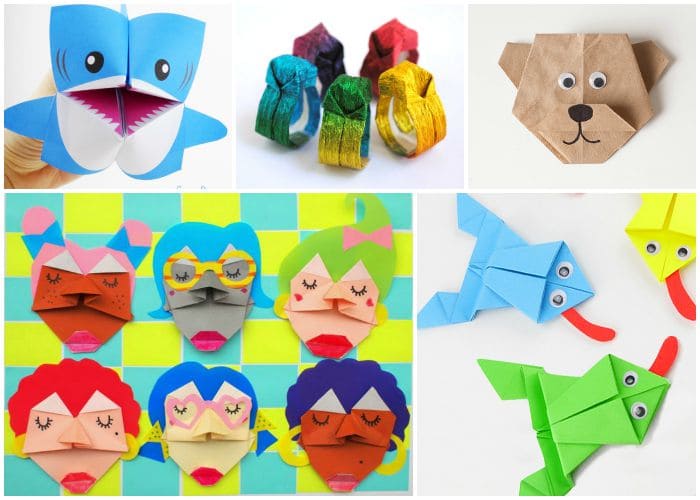
Here are four resource allocation strategies to consider:
Budget planning: Determine how much funding is available for the workshop and allocate the funds wisely. Consider the cost of materials, equipment, and any additional resources required.
Material inventory: Keep track of the origami supplies available and maintain a well-organized inventory. This will help avoid unnecessary purchases and ensure that there are enough materials for all participants.
Material sourcing: Identify reliable suppliers to purchase origami paper, tools, and other required materials. Compare prices, quality, and delivery times to make informed decisions.
Time management: Plan and schedule the workshop activities efficiently, taking into account the time needed for instruction, practice, and clean-up. Make sure to allocate sufficient time for each activity to ensure a smooth workshop experience.
Workshop Themes
When planning an after school club origami workshop, it is important to consider the workshop themes that will engage and excite the participants.
Popular workshop themes can include animals, nature, holidays, and even pop culture references.
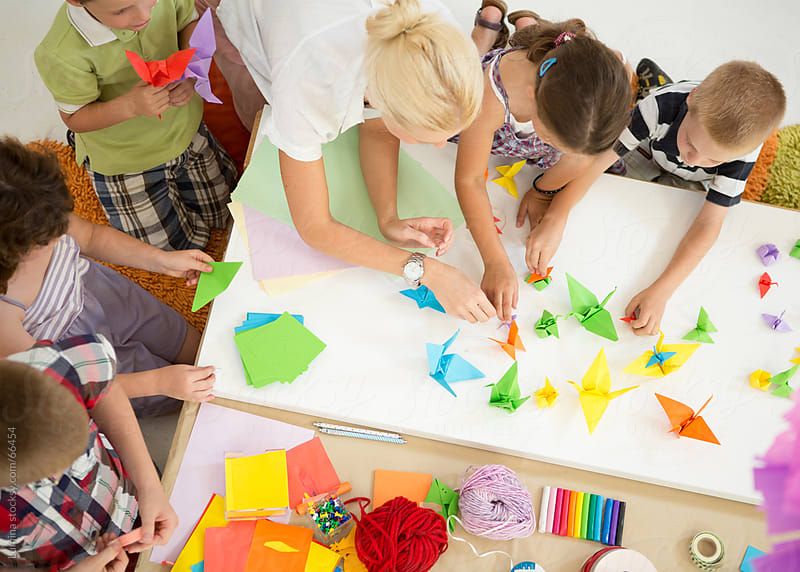
Creative theme ideas can spark the imagination and create a fun and interactive learning experience for the students.
Popular Workshop Themes
Regularly, after school club origami workshops incorporate popular themes to engage students and enhance their creativity. These themes not only make the workshops more exciting but also provide opportunities for students to explore different cultures and craft activities. Here are four popular workshop themes that are often implemented:
Animal Kingdom: Students can create various origami animals, such as elephants, butterflies, and birds. This theme allows them to learn about different species while honing their folding skills.
Mythical Creatures: This theme introduces students to the world of folklore and mythology. They can create origami dragons, unicorns, and phoenixes, sparking their imagination and curiosity.
Seasonal Celebrations: Origami workshops can align with different seasons and holidays, such as Christmas, Halloween, or Hanukkah. Students can fold ornaments, ghosts, or dreidels, connecting origami with festive traditions.
Space Exploration: This theme encourages students to explore the mysteries of the universe. They can fold rockets, spaceships, and stars, while also learning about astronomy and space exploration.
These popular workshop themes provide students with a diverse range of creative opportunities while incorporating elements of cultural exploration and craft activities.
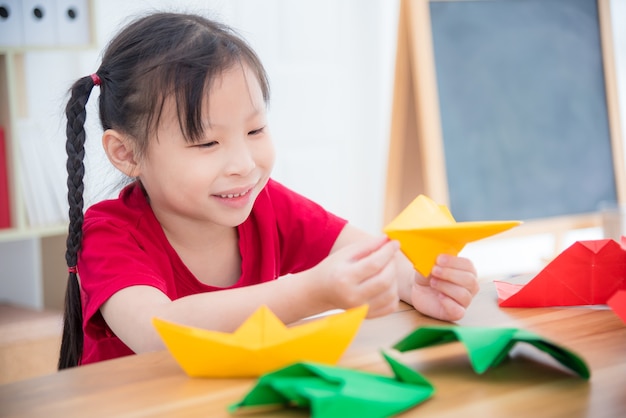
Creative Theme Ideas
With careful consideration, organizers can develop unique and engaging workshop themes for after school club origami sessions. These themes can add excitement and creativity to the learning experience while also providing an opportunity for participants to explore different aspects of origami art.
One theme idea could be 'Origami Around the World,' where participants learn about different origami techniques and styles from various cultures.
Another theme could be 'Origami and Nature,' where participants create origami models inspired by plants, animals, and natural landscapes.
'Origami and Storytelling' could be another theme, where participants create origami characters and props to bring stories to life.
Student Participation
Encouraging active engagement is crucial for fostering meaningful student participation in an after-school club origami workshop. By incorporating interactive learning techniques, students are more likely to be motivated and fully engaged in the activities.
Here are four key strategies to promote student participation:
Hands-on approach: Provide students with the opportunity to create their own origami pieces, allowing them to actively participate in the learning process.
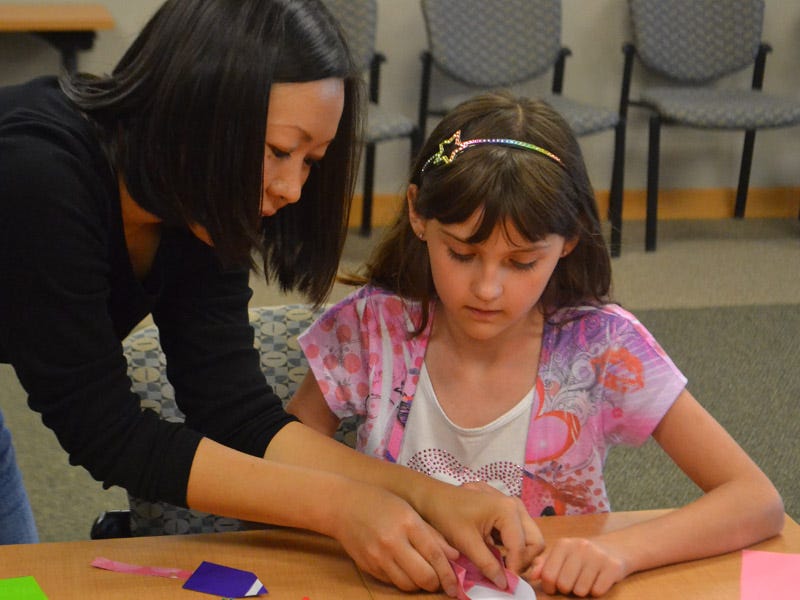
Group activities: Encourage collaboration and teamwork by organizing group projects where students can work together to solve origami challenges or create larger-scale artworks.
Gamification: Gamify the workshop by introducing fun and engaging games related to origami. This will not only enhance student participation but also make the learning experience more enjoyable.
Showcasing student work: Create opportunities for students to showcase their completed origami creations. This will boost their confidence, encourage them to actively participate, and create a sense of pride in their accomplishments.
Improving Origami Skills
One effective technique for improving origami skills is to provide students with a set of progressively challenging origami projects.
By introducing interactive demonstrations and practice exercises, students can enhance their understanding and dexterity in folding techniques.
Interactive demonstrations allow students to observe the step-by-step process of creating complex origami designs, while practice exercises provide them with opportunities to apply their knowledge and refine their skills.
This approach encourages students to experiment with different folds and explore the creative possibilities of origami.
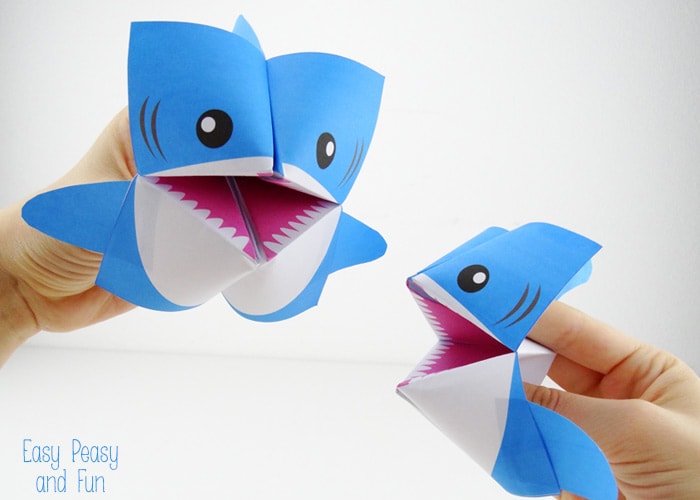
As they progress through the workshop, students will gain confidence and proficiency in their origami abilities.
Additionally, the use of progressively challenging projects ensures that students are continually challenged and motivated to improve.
Advanced Workshop Techniques
To further challenge students and expand their origami skills, incorporate advanced folding techniques and intricate designs into the workshop curriculum. This will allow participants to engage in collaborative exercises and explore the limitless possibilities of origami.
Here are four advanced workshop techniques that can be included in the curriculum:
Modular Origami: Teach students how to create complex structures by interlocking multiple folded units. This technique encourages teamwork and problem-solving as participants work together to assemble the final piece.
Wet Folding: Explore the art of wet folding, where dampened paper is used to create fluid and organic shapes. This technique requires precision and patience, allowing students to develop their attention to detail.
Tessellations: Introduce the concept of tessellations, where repeated geometric patterns are folded to create intricate designs. This technique encourages creativity and mathematical thinking.
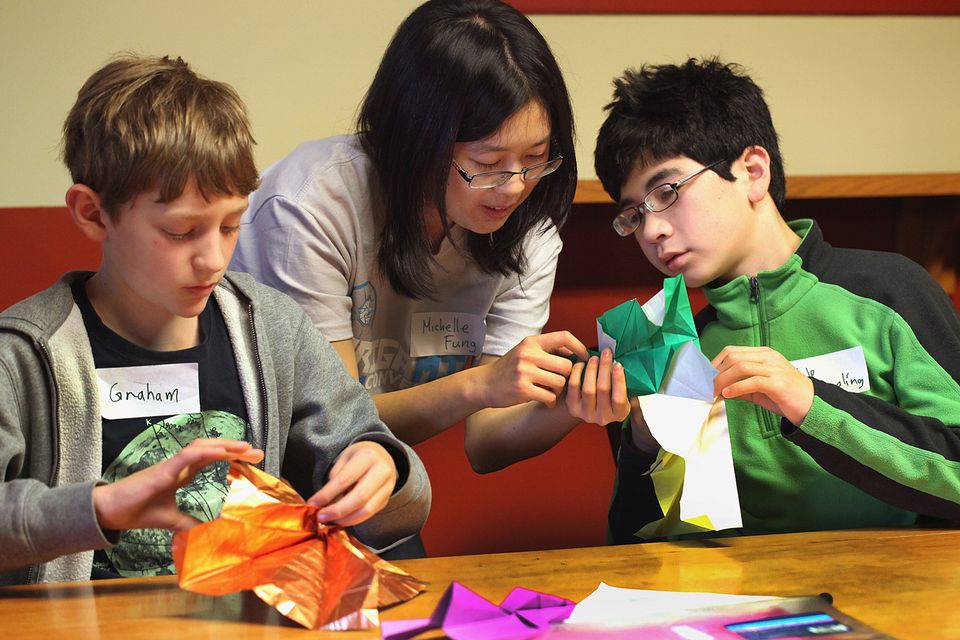
Kirigami: Combine the art of origami with cutting techniques to create three-dimensional sculptures. Kirigami adds another layer of complexity to the folding process, challenging students to think in multiple dimensions.
Collaborative Projects
A key aspect of successful after school club origami workshops is incorporating collaborative projects that foster teamwork and creativity. These projects provide an opportunity for students to work together, exchange ideas, and learn from one another. Teamwork activities in origami workshops encourage students to communicate effectively, problem-solve, and appreciate different perspectives.
Group projects in origami workshops allow students to collectively create larger and more intricate origami designs. For example, students can work together to create a large origami sculpture or a collaborative mural made of multiple origami pieces. This not only enhances their origami skills but also teaches them the value of cooperation and collaboration.
In addition to the technical aspects, collaborative projects in origami workshops also promote creativity. By working as a team, students can combine their individual ideas and experiment with different folding techniques to create unique and innovative designs. This encourages them to think outside the box and explore new possibilities in origami.
Engaging Games
During the workshop, incorporating engaging games can provide students with a fun and interactive way to further develop their origami skills. Here are four interactive activities that can be implemented to promote team building and enhance the overall learning experience:
Origami Relay Race: Divide the students into teams and provide each team with a set of origami instructions. Each team member takes turns completing a step in the instructions before passing it on to the next teammate. The team that completes the origami model first wins.
Origami Charades: Write down different origami models on slips of paper and have students take turns acting out the model without using any words. The other students must guess the correct model based on the actions.
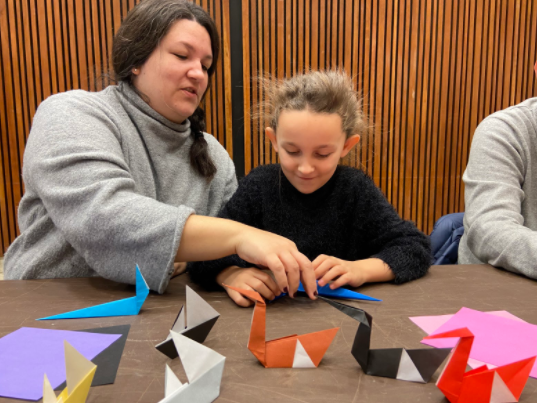
Origami Trivia: Create a trivia game where students answer questions about the history, techniques, and different types of origami. This game encourages students to expand their knowledge while having fun.
Origami Puzzle Challenge: Provide students with pre-folded origami models that are partially completed. Students must work together to figure out the remaining folds and complete the model correctly. This activity promotes collaboration and problem-solving skills.
Frequently Asked Questions
Can Parents Attend the After School Club Origami Workshop?
Parents are welcome to attend the after school club origami workshop. Parent involvement not only fosters a sense of community, but also allows parents to witness their child's growth and development in a creative and educational setting.
Is There a Minimum Age Requirement for Students to Participate in the Workshop?
There is no minimum age requirement for students to participate in the workshop. The workshop is open to all students who are interested in learning origami and are enrolled in the after school club.
Are the Origami Materials Provided by the Workshop or Do Students Need to Bring Their Own?
The workshop provides all necessary origami materials for students to use during the after school club. Students do not need to bring their own materials as the workshop ensures they have everything they need to participate.
How Long Does Each Workshop Session Typically Last?
The workshop duration and session length of the After School Club Origami Workshop vary depending on the specific program. Each session typically lasts for a specific amount of time, designed to provide adequate instruction and practice opportunities for participants.
Yes, there will be opportunities for students to showcase their origami creations to the school or community. Local origami artists will be involved to provide guidance and support in displaying the students' work.

 Kids Art ProjectsParty PlanningPaper CraftsOrigami for KidsPrivacy PolicyTerms And Conditions
Kids Art ProjectsParty PlanningPaper CraftsOrigami for KidsPrivacy PolicyTerms And Conditions
